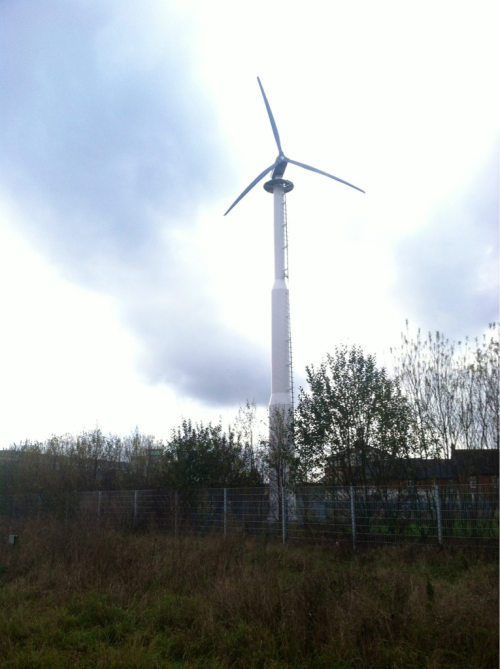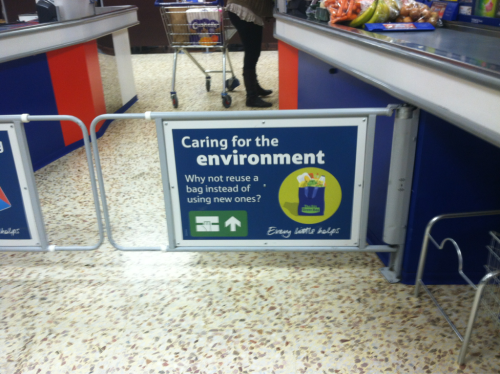Other than the difference in average car size, I’m still not exactly quite sure how conservation here differs greatly from in the States. Recycling efforts are implemented all over the West nowadays and college campuses in the states also generally have a great presence of environmental awareness development programs. It’s not as if the plants and animals differ much from the variety in New York. The only place I saw an electric car was in Norway. No aspect of environmental conservation seems drastically different yet.
The sustainability class I am in here discusses how society sustains itself, the options society has to effectively use resources and develop agriculture and industry in light of the green movement’s goals. The goals being to meet the needs of the present without compromising the ability of future generations to meet their own needs. I was surprised to find that even in a European class rooms, discussions of the development of environmental concerns often references the States, but that is where the green movement and organizations like the Sierra Club first gained ground. Plus, U.S. organization like the Environmental Protection Agency often still are the first to set standards which then are adopted elsewhere in the West. A film screened in one of the workshops actually went over each American Presidents’ approach to environmental issues. The overall issues seem to be the same. Water depletion, fossil fuel use, and pollution all need to be reduced in the States and here, but this has proved easier said than done. The decision of whether it is better to invest in more efficient and environmentally friendly new technological developments or to just cut costs is common to not just the UK and the US, but all people.
 Spending extra money and time on evaluating the ways each new construction affects the local ecosystem. Consulting sustainable development firms and securing environmental services cuts into investment capital. However, it is taught that short-term cost cutting can have major long-term consequences. Plenty of examples, such as the British Petroleum oil spill in the Gulf of Mexico, demonstrate how clean up costs far exceed the cost of preventative measures. Some new research and theories under the title of “ecological modernization” even suggest that sustainable development investments will actually stimulate the economies by creating a new green collar job sector as well as maintain long-term economic stability and growth by preventing environmental disasters. Also, technological innovations and environment-informed design are leading to more efficient solutions to the need for sustainable development.
Spending extra money and time on evaluating the ways each new construction affects the local ecosystem. Consulting sustainable development firms and securing environmental services cuts into investment capital. However, it is taught that short-term cost cutting can have major long-term consequences. Plenty of examples, such as the British Petroleum oil spill in the Gulf of Mexico, demonstrate how clean up costs far exceed the cost of preventative measures. Some new research and theories under the title of “ecological modernization” even suggest that sustainable development investments will actually stimulate the economies by creating a new green collar job sector as well as maintain long-term economic stability and growth by preventing environmental disasters. Also, technological innovations and environment-informed design are leading to more efficient solutions to the need for sustainable development.It will be interesting to see which countries make the most progress redeveloping sustainably. As of right now the direction is up in the air so future elections will determine which nations either further invest in their environmental agencies or slash their budgets. Who knows, if the EPA gets defunded in the states, majoring in environmental chemistry may one day mean having to looking in Europe for a good job.







